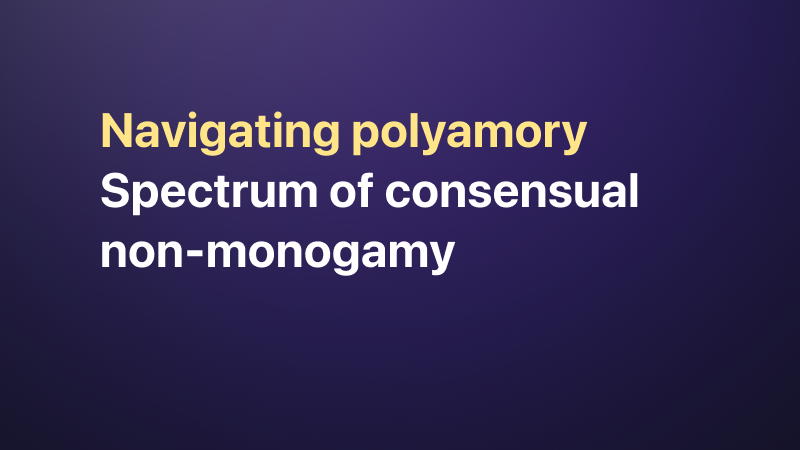In recent years, there has been growing interest and acceptance of diverse relationship structures that challenge traditional monogamy. Among these, polyamory has gained significant attention. This article delves into the world of polyamorous relationships, exploring their meanings, types, and how they differ from other forms of non-monogamous arrangements.
Defining Polyamory
Polyamory, derived from the Greek "poly" (many) and Latin "amor" (love), refers to the practice of engaging in multiple romantic relationships simultaneously with the full knowledge and consent of all parties involved. Unlike infidelity or cheating, polyamory is based on honesty, communication, and ethical considerations.
Types of Polyamorous Relationships
Polyamorous relationships can take various forms, including:
- Triads: Three people in a relationship together.
- Quads: Four people in a relationship.
- V-structures: One person is in a relationship with two others who are not romantically involved with each other.
- Kitchen Table Poly: All partners are comfortable socializing together.
- Parallel Poly: Partners are aware of each other but don't necessarily interact.
- Hierarchical Poly: Relationships are prioritized, often with a primary and secondary partners.
- Non-hierarchical Poly: All relationships are considered equally important.
Polyamory vs. Open Relationships
While both polyamory and open relationships fall under the umbrella of consensual non-monogamy, they have distinct differences:
- Polyamory focuses on the potential for multiple loving relationships.
- Open relationships typically involve a primary partnership that allows for outside sexual experiences.
The key distinction lies in the emotional involvement: polyamory embraces the possibility of deep emotional connections with multiple partners, while open relationships often prioritize sexual exploration outside the primary relationship.
Polyamory vs. Polygamy
It's crucial to distinguish between polyamory and polygamy:
- Polyamory: Consensual non-monogamous relationships regardless of gender or marital status.
- Polygamy: The practice of having multiple spouses, typically one person married to several partners.
Key differences include:
- Legal status: Polygamy is illegal in many countries, while polyamory is not legally recognized but isn't prohibited.
- Gender dynamics: Polygamy often involves one man with multiple wives (polygyny) or, less commonly, one woman with multiple husbands (polyandry). Polyamory is not gender-specific.
- Cultural and religious context: Polygamy is often tied to specific cultural or religious practices, while polyamory is generally secular.
Benefits and Challenges of Polyamory
Benefits:
- Increased emotional support and connection
- Personal growth and self-awareness
- Diverse experiences and perspectives
- Flexibility in meeting different needs
Challenges:
- Managing jealousy and insecurity
- Time management and logistics
- Societal stigma and misunderstanding
- Navigating complex emotions and dynamics
Self-Reflection Questions
- What attracts me to the idea of polyamory, and what concerns do I have?
- How do I handle jealousy and insecurity in my current relationships?
- Am I comfortable with open communication about emotions and desires?
- How would my current relationship(s) or life circumstances be affected by polyamory?
- What personal growth areas would I need to focus on to thrive in a polyamorous setup?
Conclusion
Polyamory offers an alternative approach to relationships that emphasizes honesty, communication, and the capacity to love multiple people. While it presents unique challenges, many find it a fulfilling way to explore connections and personal growth. As with any relationship style, success in polyamory depends on the individuals involved and their commitment to ethical, consensual practices.




